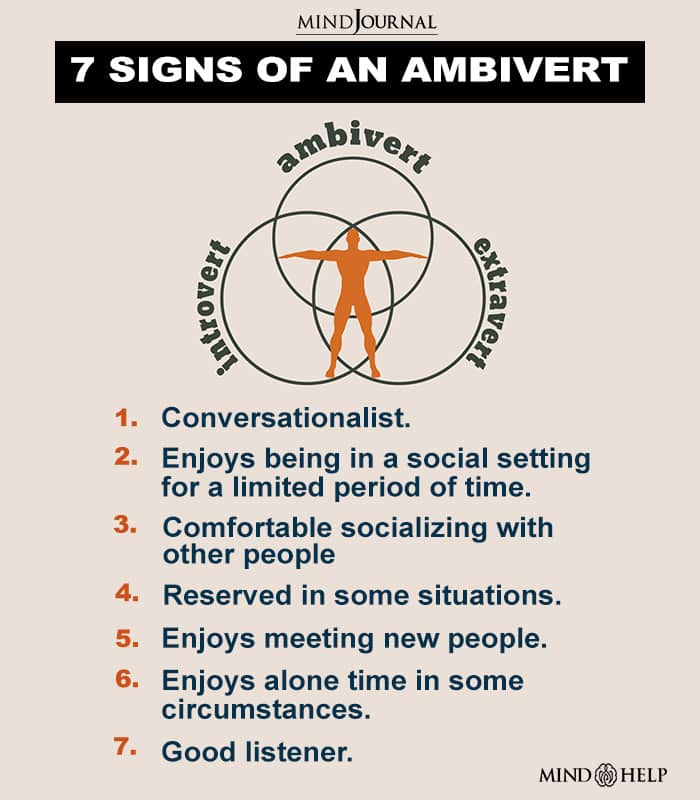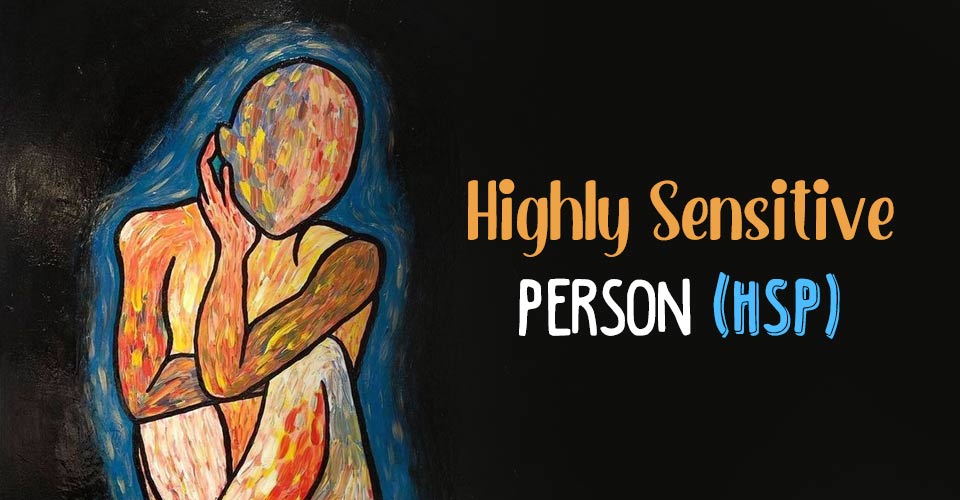Extroversion is a personality trait characterized by friendliness, energy, and outgoingness. An extrovert primarily focuses on obtaining gratification from outside oneself.
What Is Extroversion?
Extroversion, also known as extraversion, is a personality trait that is manifested through excitability, sociable, energetic, assertive, gregarious, openly expressive, and talkative behavior. Regarded as one of the Big Five and five-factor personality models [mfn] Widiger, T. A., & Crego, C. (2019). The Five Factor Model of personality structure: an update. World psychiatry : official journal of the World Psychiatric Association (WPA), 18(3), 271–272. https://doi.org/10.1002/wps.20658 [/mfn] , it refers to a particular psychological tendency, inclination, and attitude where an individual focuses their energy on the outer world rather than their inner world (introversion).
People with this personality trait, known as an extrovert, are more interested in external stimuli, willing to accept outside influences and events, more responsive, ready to be influenced and influence others and have a strong need to belong to certain groups. Extrovert people tend to enjoy human interaction and are often found to be enthusiastic and friendly. They take immense pleasure in large social gatherings such as parties, community activities, or business groups. They are often energetic when they are around people and are more likely to enjoy time spent with other people. Extrovert people find it less rewarding to spend time alone and are more prone to boredom when they are by themselves.
The notion was first proposed[mfn] Green, C. D. Classics in the history of psychology — Jung (1921/1923) Chapter 10. Classics in the History of Psychology. https://psychclassics.yorku.ca/Jung/types.htm [/mfn] by noted psychiatrist Carl Jung [mfn] What C.G. Jung meant and how contemporaries responded. (2012). ResearchGate. https://www.researchgate.net/publication/264782791_Extraversion_-_Introversion_what_CG_Jung_meant_and_how_contemporaries_responded [/mfn] in 1920 as ‘Extraversion’. However, the term was later modified to Extroversion. According to Jung, this trait is “characterized by interest in the external object.” He believed that an extrovert is better able to tolerate “bustle and noise” and even able to enjoy it, unlike an introvert. Moreover, they pay more attention to their environment and easily develop bonds & friendships. A 2011 study [mfn] Fishman, I., Ng, R., & Bellugi, U. (2011). Do extraverts process social stimuli differently from introverts?. Cognitive neuroscience, 2(2), 67–73. https://doi.org/10.1080/17588928.2010.527434 [/mfn] explains “Extraversion, a fundamental personality dimension, captures the social aspect of personality. Extraverts have a preference for seeking, engaging in, and enjoying social interactions, whereas introverts prefer to avoid social situations.”
Understanding Extroversion
According to a 2016 study [mfn] Extraversion-introversion (Jung’s theory). (2016). SpringerLink. https://link.springer.com/referenceworkentry/10.1007%2F978-3-319-28099-8_1073-1 [/mfn], Carl Jung explained “extraversion” as an “outward-turning of libido” or “psychic energy.” Jung believed that each of us possesses both extroverted and introverted personality traits. However, one of these attitudes or traits tends to be consistently dominant. You can have an extroverted personality or attitude when you are constantly stimulated and motivated by external factors, which also influence your thoughts, emotions, perceptions, judgments and behavior.
Their philosophy, ethics and beliefs are prone to modifications depending on the public opinion. Research [mfn] Joanna, E. (1987). Classics in the history of psychology — Jung (1921/1923) Chapter 10. Classics in the History of Psychology. https://psychclassics.yorku.ca/Jung/types.htm [/mfn] has revealed that an extrovert is typically candid, sociable, accommodating, and outgoing in nature. They are more willing to adapt to any situation, create attachments easily, more prone to resolve relationship issues, and tend to be highly adventurous as they confidently & carelessly venture into unknown situations. “Extraverts like to travel, meet new people, see new places. They are the typical adventurers, the life of the party, open and friendly,” explains the research paper.
A 2013 study [mfn] Salary, S., & Shaieri, M. R. (2013). Study of the relationship between happiness and dimensions of psychosis, neurosis and personality extraversion. Procedia – Social and Behavioral Sciences, 84, 1143-1148. https://doi.org/10.1016/j.sbspro.2013.06.716 [/mfn] found that almost a third of the American population possesses this personality trait. They are outspoken and impulsive. They are extremely motivated in social situations and are often receptive to the company of others. However, they also tend to display social dominance. They are liked by everyone. Hence, they are often the center of attention in social settings or seeking leadership roles in group activities. In a 2015 study [mfn] Feiler, D. C., & Kleinbaum, A. M. (2015). Popularity, similarity, and the network extraversion bias. Psychological Science, 26(5), 593-603. https://doi.org/10.1177/0956797615569580 [/mfn], researchers found that extrovert people tend to be overrepresented in social networks. According to one study, they tend to wear more decorative clothing, whereas introverts prefer practical and comfortable clothes.
Extroverts Vs. Introverts
Extrovert people are energetic and enthusiastic individuals who love to engage in social situations. Introverts are predominantly interested in one’s own mental self. Extroverted people are more successful and happier at work than introverts. They are also more likely to die young or experienced infidelity. Introverts are found to struggle with anxiety and depression and are perceived as less socially desirable.
A 2015 [mfn] OSBORN, H. (2015). CORE – Aggregating the world’s open access research papers. https://core.ac.uk/download/pdf/36693062.pdf [/mfn] study pointed out that extroverts enjoy social situations, seek new experiences and adventures, and feel comfortable in groups. Introverts are often more closed and prefer being left alone. They also feel uncomfortable in social settings. Introverts take extreme pleasure in solitary activities such as reading or journaling. They rarely spend time in large groups. They often feel overwhelmed in social gatherings due to too much stimulation. Introverts tend to be more analytical in speaking than extroverts. They lack strong interpersonal skills and don’t make good leaders.
A 1980 [mfn] Costa, P. T., Jr, & McCrae, R. R. (1980). Influence of extraversion and neuroticism on subjective well-being: happy and unhappy people. Journal of personality and social psychology, 38(4), 668–678. https://doi.org/10.1037//0022-3514.38.4.668 [/mfn] study found that extroverts have a preference for seeking, engaging in, and enjoying social interaction whereas introverts prefer to avoid social situations and tend to be reserved, withdrawn or shy in social settings.
Read More About Signs Of An Extrovert Here.
Extraversion And Neuroticism
Neuroticism is one of the big 5 personality traits characterized by an inclination towards anxiety, depression, self-doubt, and other negative feelings. People who are neurotic have low emotional stability. Some of the other traits of neuroticism are:
- Being worried
- Getting easily disturbed
- Getting irritated easily
- Having frequent mood swings
- Feeling sad
A 1994 study [mfn] Clark LA, Watson D, Mineka S. Temperament, personality, and the mood and anxiety disorders. J Abnorm Psychol. 1994 Feb;103(1):103-16. PMID: 8040472. [/mfn] pointed out that high levels of neuroticism are associated with a risk of mental illness. People who are neurotic get easily trapped in the maladaptive thought patterns of depression and anxiety. Research [mfn] Roberts, B. W., & Mroczek, D. (2008). Personality Trait Change in Adulthood. Current directions in psychological science, 17(1), 31–35. https://doi.org/10.1111/j.1467-8721.2008.00543.x [/mfn] suggests that personality traits can change over the course of life. Extraversion is one of the big 5 personality traits characterized by positive affect, engaging in social interaction, and high levels of reward responsively. A 2008 study [mfn] Lucas, R. E., Le, K., & Dyrenforth, P. S. (2008). Explaining the extraversion/positive affect relation: sociability cannot account for extraverts’ greater happiness. Journal of personality, 76(3), 385–414. https://doi.org/10.1111/j.1467-6494.2008.00490.x [/mfn] found that the association between extraversion and positive affect is one of the most robust findings in the study of personality and emotion.
Human personality traits regulated by behavioral approach vs avoidance motivation such as extraversion and neuroticism vary within the human population across the globe. Evidence [mfn] Lo, M. T., Hinds, D. A., Tung, J. Y., Franz, C., Fan, C. C., Wang, Y., Smeland, O. B., Schork, A., Holland, D., Kauppi, K., Sanyal, N., Escott-Price, V., Smith, D. J., O’Donovan, M., Stefansson, H., Bjornsdottir, G., Thorgeirsson, T. E., Stefansson, K., McEvoy, L. K., Dale, A. M., … Chen, C. H. (2017). Genome-wide analyses for personality traits identify six genomic loci and show correlations with psychiatric disorders. Nature genetics, 49(1), 152–156. https://doi.org/10.1038/ng.3736 [/mfn] suggests that both genetic and cultural variations influence variation in personality. There are also studies [mfn] DeYoung, C. (2014). A cybernetic Big Five theory for personality psychology. Personality and Individual Differences, 60, S18. https://doi.org/10.1016/j.paid.2013.07.381 [/mfn] that suggest that personality traits are heritable. A study [mfn] Hammen C. (2005). Stress and depression. Annual review of clinical psychology, 1, 293–319. https://doi.org/10.1146/annurev.clinpsy.1.102803.143938 [/mfn] hypothesized associations between psychopathology and life stress.
The variable is described as the propensity to experience negative mood states, and extraversion, characterized by talkativeness, sociability, and outgoingness. Some studies [mfn] Hayward, C., Killen, J. D., Kraemer, H. C., & Taylor, C. B. (2000). Predictors of panic attacks in adolescents. Journal of the American Academy of Child and Adolescent Psychiatry, 39(2), 207–214. https://doi.org/10.1097/00004583-200002000-00021 [/mfn] have found associations between neuroticism, depression, and life stress simultaneously. It was also found [mfn] Kendler, K. S., Kuhn, J., & Prescott, C. A. (2004). The interrelationship of neuroticism, sex, and stressful life events in the prediction of episodes of major depression. The American journal of psychiatry, 161(4), 631–636. https://doi.org/10.1176/appi.ajp.161.4.631 [/mfn] that people with high neuroticism were more likely to experience depressive episodes following stressful life events. However, in a 1994 study [mfn] Trull, T. J., & Sher, K. J. (1994). Relationship between the five-factor model of personality and Axis I disorders in a nonclinical sample. Journal of abnormal psychology, 103(2), 350–360. https://doi.org/10.1037//0021-843x.103.2.350 [/mfn], it was found that those with depression report lower concurrent levels of extraversion.
Read More About Big 5 Personality Traits Here.
Extroversion In The Workplace
An employee with high levels of extrovert personality is sincere and is an expert at engaging with other people. They are easily approachable and are pleasant around other people. An extrovert employee can accomplish their goals by influencing and persuading other people to work as a team. They often look for opportunities to interact with others such as introducing to teammates or hosting a welcome lunch.
Employees with low levels of extraversion don’t engage in social interaction. They are quiet and non-communicative. For a person with low levels of extroversion, social interaction can be exhausting. If you have a highly extroverted boss, you may find that he is empathetic. They may also take an interest in your welfare and your work-related goals. He/she may also delegate authority and allow them to explore their talents.
Personality Traits Of An Extrovert
Extroverts are fun-loving people. Their outgoing personality draws the crowd towards them. They love interacting and socializing with other people. Some of the most common personality traits of an extrovert are:
1. Enjoys social settings
Extroverted people are the center of attention in social gatherings. They are often found to thrive in social situations and are not afraid to interact with new people. They don’t avoid unfamiliar situations even with strangers. A 1980 study suggests that they have a preference for seeking, engaging in, and enjoying social interactions.
2. Avoids or dislikes alone time
People with extroversion dislike spending time alone. Hence, they need to escape to a night out with friends after an intense meeting or a hard day at work. They recharge themselves by being around other people.
3. Feels comfortable in large groups
They are often found to be comfortable in large groups. They love being in social gatherings. They rarely turn down invitations to weddings or parties.
4. Makes new friends easily
Extroverts are experts in making new friends. They enjoy other people’s energy and usually have large social networks and groups.
Read More About Friends Here.
5. Loves to express their feelings
An extrovert loves to express their feelings and does not hesitate to share their problems with others for discussion and guidance. They express their feelings openly without any reservation.
6. Outgoing and optimistic
They are outgoing, cheerful, and optimistic. Extroverts don’t dwell on problems and difficulties. They are often found to get back up and pull themselves together while facing difficult situations.
7. Engages in risky behavior
Since extroverts are so enthusiastic or energetic, they often engage in risky behavior. Their brain is wired to reward them if they succeed at it. A 1999 study [mfn] Depue, R. A., & Collins, P. F. (1999). Neurobiology of the structure of personality: dopamine, facilitation of incentive motivation, and extraversion. The Behavioral and brain sciences, 22(3), 491–569. https://doi.org/10.1017/s0140525x99002046 [/mfn] found that extroverts who take risks and succeed are rewarded with dopamine, a chemical that triggers the reward center of the brain. They are more willing to take risks due to the surge of dopamine rush they experience while succeeding at it.
8. Flexible
Even though they are organized, they do not have a plan of action for major projects, or vacations, or any major event. They are often adaptable and innovative in case any problems arise. They are very flexible and spontaneous when it comes to getting things done.
Advantages Of Being An Extrovert
There are several advantages of being an extrovert in social settings or at work. They are as follows:
- They are enthusiastic. Scientific studies [mfn] Nature, development and implications to psychological health and work life. (2014). ResearchGate. Nature, development and implications to psychological health and work life. (2014). ResearchGate. https://www.researchgate.net/publication/261874637_Extraversion_Nature_Development_and_Implications_to_Psychological_Health_and_Work_Life [/mfn] suggest that they are more likely to associate pleasurable feelings with their current environment.
- They are more likely to be leaders [mfn] Ones, D. S., & Dilchert, S. (2009). How special are executives? How special should executive selection be? Observations and recommendations. Industrial and Organizational Psychology, 2(2), 163-170. https://doi.org/10.1111/j.1754-9434.2009.01127.x [/mfn] because they are experts in communicating in large social groups.
- Extroverts are excellent at bringing out the best in others through conversation.
- They have a positive mindset.
- They are motivated by rewards.
Causes Of Extroversion
According to some researchers [mfn] Kehoe, E. G., Toomey, J. M., Balsters, J. H., & W. Bokde, A. L. (2011). Personality modulates the effects of emotional arousal and valence on brain activation. OUP Academic. https://academic.oup.com/scan/article/7/7/858/1676300 [/mfn], extroverts tend to need more external stimulation while introverts tend to become stimulated very easily. The exact cause of being an extrovert is still unknown. There may be two factors responsible for extroversion. They are:
1. Genetic Factors
Genetics plays a major role in extroversion. A twin study suggested that genetics contribute somewhere between 40% and 60% of the variance between extroversion and introversion. A 1956 twin study [mfn] Power, R. A., & Pluess, M. (2015). Heritability estimates of the Big Five personality traits based on common genetic variants. Translational psychiatry, 5(7), e604. https://doi.org/10.1038/tp.2015.96 [/mfn] found stronger correlations between extroversion and identical twins. This suggests that this personality trait has a hereditary influence.
2. Environmental Factors
A 2011 study [mfn] Plomin, R., & Daniels, D. (2011). Why are children in the same family so different from one another?*. OUP Academic. https://academic.oup.com/ije/article/40/3/563/740639 [/mfn] found evidence of the influence of environmental factors on personality, psychopathology, and cognition. These environmental influences make two children in the same family different from one another. Another 2011 scientific study [mfn] Bornstein, M. H., Hahn, C. S., & Haynes, O. M. (2011). Maternal personality, parenting cognitions, and parenting practices. Developmental psychology, 47(3), 658–675. https://doi.org/10.1037/a0023181 [/mfn] suggested that the mother and child relationship can influence extroversion levels. Children who have a secure attachment with their parents demonstrate higher levels of extrovert personality than any other style of attachment. Other environmental factors such as parental discipline may also influence a child’s personality. A 2013 study [mfn] Rubin, K. H., Coplan, R. J., & Bowker, J. C. (2009). Social withdrawal in childhood. Annual review of psychology, 60, 141–171. https://doi.org/10.1146/annurev.psych.60.110707.163642 [/mfn] reported that sons who were punished by their parents demonstrated more introverted behavior than those who were less severely punished.
Measurement Of Extroversion
The prevalence of extroversion is usually assessed through self-report measures. Although third party observations and peer reports are also used. Self-report measures are done by either lexical reporting or based on statements. Lexical self-reporting uses adjectives to describe extrovert or introvert traits such as outgoing, talkative or energetic.
Words that represent introversion are reverse coded to determine the prevalent personality traits in an individual. Statement self-reporting contains more words than lexical self-reporting. Some of the questions in this assessment are more extensive. For example “do you talk to a lot of different people or often feel comfortable around other people”.
Extroversion And Behavior
Most people are not purely extroverts. Every individual might possess a blend of introversion and extroversion traits. Research [mfn] McCabe, K. O., & Fleeson, W. (2012). What Is Extraversion For? Integrating Trait and Motivational Perspectives and Identifying the Purpose of Extraversion. Psychological Science, 23(12), 1498–1505. https://doi.org/10.1177/0956797612444904 [/mfn] suggests that extroversion is largely associated with leadership behavior. Since extroverts are often excellent at engaging in groups, it makes sense that they tend to flourish in leadership roles when working with other people. Individuals who are extroverts tend to have a positive outlook on life. They are very friendly, energetic, and highly adaptable.
They often engage in risky behaviors such as skydiving or paragliding. An extrovert is often considered the “life of the party”. However, they may also be disliked by some people because they are often perceived as too overwhelming and difficult to tolerate. People with high levels of extroversion are well suited for jobs in teaching, marketing and sales, public relations, and politics. Extroverts are primarily interested in what is happening around them while introverts are concerned with the inner world. They are generally proactive and like to get things done. They tend to seek out new experiences and adventures.
A 1990 study [mfn] Stelmack R. M. (1990). Biological bases of extraversion: psychophysiological evidence. Journal of personality, 58(1), 293–311. https://doi.org/10.1111/j.1467-6494.1990.tb00917.x [/mfn] found evidence that in electrodermal and electrocortical recording procedures, introverts exhibit greater reactivity to sensory stimulation than extraverts. This study also showed evidence that individual differences in the expression of motor activity between introverts and extroverts involve differences in motoneuronal excitability.
A 1975 study [mfn] Barnes G. E. (1975). Extraversion and pain. The British journal of social and clinical psychology, 14(3), 303–308. https://doi.org/10.1111/j.2044-8260.1975.tb00182.x [/mfn] also pointed out that extroverts have higher pain thresholds and greater pain tolerance than introverts. Another evidence [mfn] Lucas, R. E., Le, K., & Dyrenforth, P. S. (2008). Explaining the extraversion/positive affect relation: sociability cannot account for extraverts’ greater happiness. Journal of personality, 76(3), 385–414. https://doi.org/10.1111/j.1467-6494.2008.00490.x [/mfn] suggests that according to a mediation model, extraverts’ greater social activity can account for their increased positive affect when compared to introverts. According to a person-by-situation interaction model, extroverts react more positively to social situations than do introverts, and this interaction can account for the association.
Extroversion And Happiness
Studies [mfn] Salary, S., & Shaieri, M. R. (2013). Study of the relationship between happiness and dimensions of psychosis, neurosis and personality extraversion. Procedia – Social and Behavioral Sciences, 84, 1143-1148. https://doi.org/10.1016/j.sbspro.2013.06.716 [/mfn] found a positive correlation between extraversion and happiness. Extroverts are happiest when they engage and communicate in social gatherings. This leads them to seek out more of these enjoyable experiences. They tend to gain pleasure from the stimulation and attention of social interactions with friends, colleagues, or even new acquaintances. A scientific review [mfn] Zelenski, J. M., & Sobocko, K. (2014). Introversion, solitude, and subjective well-being. ResearchGate. https://www.researchgate.net/publication/263047178_Introversion_Solitude_and_Subjective_Well-Being [/mfn] reported that extroverts report being happier than introverts even while they are alone. The potential to achieve happiness is not necessarily predetermined by an individual’s personality type. It is important to note that extroversion levels simply influence the behavior we require to feel happy.
A 2015 research [mfn] Cabello, R., & Fernandez-Berrocal, P. (2015). Under which conditions can introverts achieve happiness? Mediation and moderation effects of the quality of social relationships and emotion regulation ability on happiness. PeerJ, 3, e1300. https://doi.org/10.7717/peerj.1300 [/mfn] suggests that on average extroverts score higher on happiness than introverts. However, it doesn’t necessarily mean that introverts are always unhappy. Some experts [mfn] Szczygiel, D., & Mikolajczak, M. (2018). Is It Enough to Be an Extrovert to Be Liked? Emotional Competence Moderates the Relationship Between Extraversion and Peer-Rated Likeability. Frontiers in psychology, 9, 804. https://doi.org/10.3389/fpsyg.2018.00804 [/mfn] speculate that extroverts’ higher scores are greatly influenced by greater social acceptance. A 2006 study [mfn] Lischetzke, T., & Eid, M. (2006). Why extraverts are happier than introverts: the role of mood regulation. Journal of personality, 74(4), 1127–1161. https://doi.org/10.1111/j.1467-6494.2006.00405.x [/mfn] demonstrated that they have better mood maintenance abilities than introverts and that these mood regulation abilities can account for the higher habitual happiness of extroverts.
Relationships Between Extroverts And Introverts
The relationship between an introvert and an extrovert can be challenging. Extroverts are fun-loving people. Hence they seek attention everywhere they go. This can be challenging for an introvert since they aren’t as outgoing and attention-seeking as their partner. Extroverts are easily bored and they won’t hesitate to walk away if they find you boring. They are constantly looking for something better and if the relationship isn’t exciting enough they might break it off.
A 2012 study [mfn] Nelson, P. A., Thorne, A., & Shapiro, L. A. (2011). I’m outgoing and she’s reserved: the reciprocal dynamics of personality in close friendships in young adulthood. Journal of personality, 79(5), 1113–1147. https://doi.org/10.1111/j.1467-6494.2011.00719.x [/mfn] suggested that social interaction is so central to relationships that the dimension of extroversion and introversion should be associated with a number of friendship activities or domains. Extroverts are more socially outgoing while introverts are largely associated with less physically active pursuits. Hence, it is often found that the extrovert in the relationship takes the lead and asserts their voice when their introverted partner cannot. On the other hand, introverts have been found to be more sensitive to issues of privacy.
Extroverts are usually the more talkative and outgoing ones in the relationship. They are also less likely to share sentimental things with other people. However, it can also be seen that they tend to get bored easily.
Ambiverts: A Blend Of Extrovert And Introvert

Ambiversion is a combination of introversion and extroversion. Ambivert is a person who possesses the characteristics of both extrovert and introvert. A person cannot be purely an extrovert or an introvert. A study suggested that almost two-thirds of people do not strongly identify as introverts or extroverts. Ambiverts naturally engage in a flexible pattern of talking and listening but often are less vulnerable to appear too excited or overconfident. Some of the signs that a person is an ambivert are as follows:
- Conversationalist
- Enjoys being in a social setting for a limited period of time
- Comfortable socializing with other people
- Reserved in some situations
- Enjoys meeting new people
- Enjoys alone time in some circumstances
- Good listener
The Brain Of An Extrovert
A 2011 research suggests that there is a difference between the brains of extroverted and introverted people in regards to how we process rewards and how genetics influences them. The stimulation in our brains is processed differently depending on our personality. For extroverts, it runs through an area where taste, touch, visual and auditory processing take place.
On the other hand, for introverts, the stimuli run through a long complicated process of the brain associated with remembering, planning, and solving problems. One 1999 study pointed out that extroverts have more blood flow in the anterior cingulate gyrus, temporal lobes, and posterior thalamus, which are involved in sensory and emotional experience.
One 2007 study [mfn] Golimbet, V.E., Alfimova, M.V., Gritsenko, I.K. et al. Relationship between dopamine system genes and extraversion and novelty seeking. Neurosci Behav Physiol 37, 601–606 (2007). https://doi.org/10.1007/s11055-007-0058-8 [/mfn] also pointed out that genes that govern how your brain responds to dopamine may also predict your personality characteristics.
Developing Extroversion
There may be several benefits of having an extrovert trait. Every individual possesses different personality traits such as introversion and extroversion or a blend of the two traits i.e ambiversion. If you are an introvert, it is possible to develop new skills to become an extrovert. You may not be able to change your nature, but you can work on developing your strengths and take on new challenges to be more outgoing and enthusiastic.
Extroversion At A Glance
- Extroversion is a personality trait characterized by friendliness, energy, and outgoingness.
- Extroverted people find it less rewarding to spend time alone and are more prone to boredom when they are by themselves.
- The prevalence of extroversion is usually assessed through self-report measures.
- Every individual might possess a blend of introversion and extroversion traits.
- Extroverts are happiest when they engage and communicate in social gatherings.
- Ambiversion is a combination of introversion and extroversion.
- There is a difference between the brains of extroverted and introverted people in regards to how we process rewards and how genetics influences them.











Leave a Reply